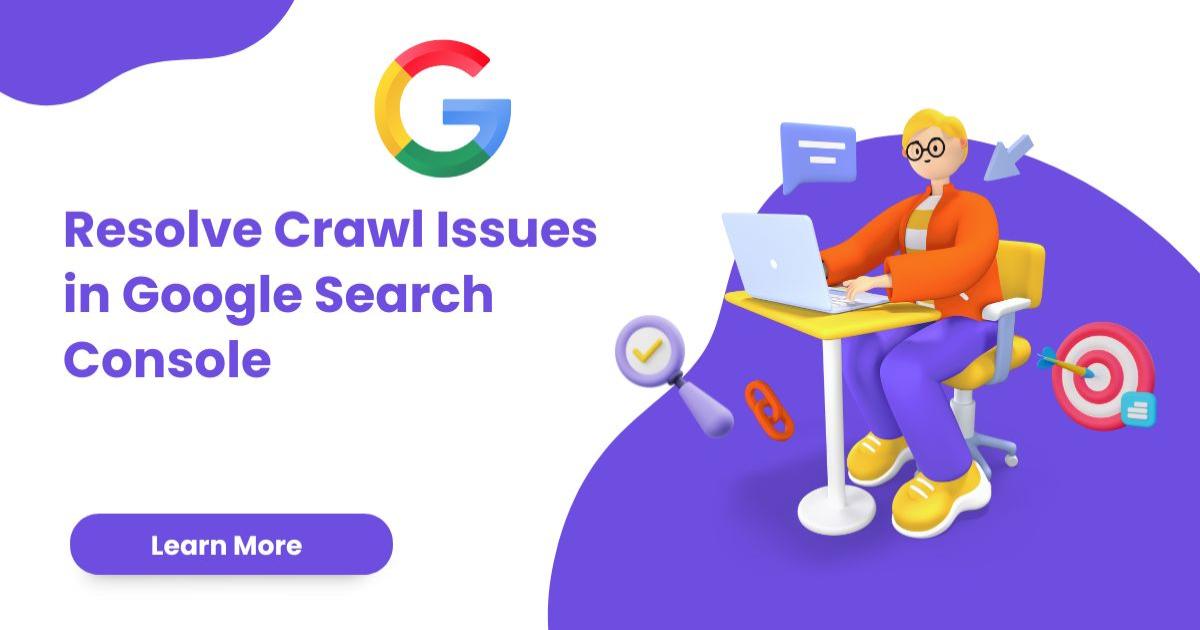Maintaining a healthy website is crucial for online visibility, and one key aspect is resolving crawl issues in Google Search Console. Crawl issues can hinder how search engines like Google index your site, potentially impacting your website's ranking and visibility.
Understanding and addressing these issues is vital for ensuring your website is properly indexed and performs well in search results. This guide will walk you through understanding crawl errors, identifying crawl issues, and implementing fixes to improve your website's SEO.

By resolving crawl issues, you can enhance your website's overall health and improve its performance on search engines. This introduction sets the stage for a comprehensive look at the steps and strategies for addressing crawl issues.
Key Takeaways
- Understanding the importance of resolving crawl issues for website health.
- Identifying common crawl issues in Google Search Console.
- Steps to fix crawl errors and improve SEO.
- Best practices for maintaining a healthy website.
- Enhancing website visibility through proper indexing.
Understanding Crawl Errors in Google Search Console
Understanding crawl errors is crucial for maintaining a healthy website presence on Google. Crawl errors occur when Google's crawlers encounter difficulties accessing your website's content. Resolving these errors is vital for ensuring your website is properly indexed and visible to users.
What Are Crawl Errors and Why They Matter
Crawl errors are issues that prevent Google's crawlers from accessing your website's pages. These errors can lead to a decrease in your website's visibility and negatively impact your SEO efforts. As Google states, "Crawl errors can prevent your content from being indexed, which can affect your site's visibility in search results."
Common Types of Crawl Errors
There are several types of crawl errors, including 404 errors, server errors (5xx), and robots.txt errors. 404 errors occur when a page is not found, while server errors indicate a problem with your server. Robots.txt errors happen when Google's crawlers are blocked from accessing certain pages or resources. Understanding these errors is the first step towards resolving them and improving your website's crawlability.
How to Identify Crawl Issues in Google Search Console
Regularly checking Google Search Console for crawl issues is essential for maintaining a healthy and crawlable website. To do this effectively, you need to understand how to access and interpret the relevant reports.
Accessing the Coverage Report
To identify crawl issues, start by accessing the Coverage report in Google Search Console. This report provides an overview of how Google crawls and indexes your website's pages.
Interpreting Error Reports
The Coverage report categorizes SEO crawl issues into several types, including 404 errors, server errors (5xx), and robots.txt errors. Understanding these categories is crucial for identifying the root cause of crawl issues and implementing crawl error fixes.
Prioritizing Crawl Issues
Not all crawl issues are equally important. Prioritize issues based on their severity and impact on your website. A table summarizing the crawl issue types, their severity, and required actions can help in this process.
| Crawl Issue Type | Severity | Action Required |
|---|---|---|
| 404 Errors | High | Fix broken links or remove references to non-existent pages |
| Server Errors (5xx) | High | Investigate server-side issues and resolve them promptly |
| Robots.txt Errors | Medium | Review and update robots.txt to ensure correct directives |

How to Fix Crawl Errors in Google Search Console
To improve your website's search engine ranking, it's necessary to identify and fix crawl errors reported in Google Search Console. Crawl errors can hinder Google's ability to crawl and index your site's pages, negatively impacting your online presence.
Fixing these errors involves several steps, each addressing different types of crawl issues. Understanding the nature of these errors is crucial for effective resolution.
Resolving 404 Errors
404 errors occur when a requested page is not found. To resolve these, you can either restore the content if it was deleted by mistake or set up a redirect to a relevant existing page. Regularly updating your content and monitoring your site's links can help prevent 404 errors.
Fixing Server Errors (5xx)
Server errors, indicated by 5xx status codes, signify problems with your server. To fix these, check your server status and logs to identify the cause, which could range from overload to configuration issues. Ensuring your server is properly configured and has sufficient resources can mitigate these errors.

Addressing Robots.txt Errors
Robots.txt errors happen when Googlebot is blocked from crawling certain pages or resources due to your robots.txt file. Reviewing and updating this file to allow necessary crawling can resolve these issues. It's essential to strike a balance between blocking sensitive areas and allowing Google to crawl your site's important content.
Solving Mobile Usability Issues
With the majority of searches coming from mobile devices, ensuring your site is mobile-friendly is crucial. Mobile usability issues can be fixed by implementing a responsive design that adapts to various screen sizes and testing your site's mobile usability regularly.
Preventing Future Crawl Errors
To prevent future crawl errors, maintain a clean and updated website. Regularly monitor your site's performance in Google Search Console, update your sitemap, and ensure your content is high-quality and relevant. By doing so, you can reduce the likelihood of crawl errors and improve your site's overall health.
Conclusion
Regularly checking for and resolving crawl errors in Google Search Console is crucial for maintaining a healthy website and improving its visibility in search results. By understanding the types of crawl errors and knowing how to identify and fix them, you can ensure that your website is crawled and indexed correctly.
Resolving Google Search Console crawl issues and SEO crawl issues promptly can significantly impact your website's performance. By doing so, you can improve your website's ranking, drive more traffic, and provide a better user experience for your visitors.
By applying the knowledge gained from this guide, you can optimize your website's crawlability, reduce errors, and enhance its overall SEO. Regular monitoring and maintenance of your website's crawl health will help you stay ahead of potential issues and maintain a competitive edge in search engine rankings.






